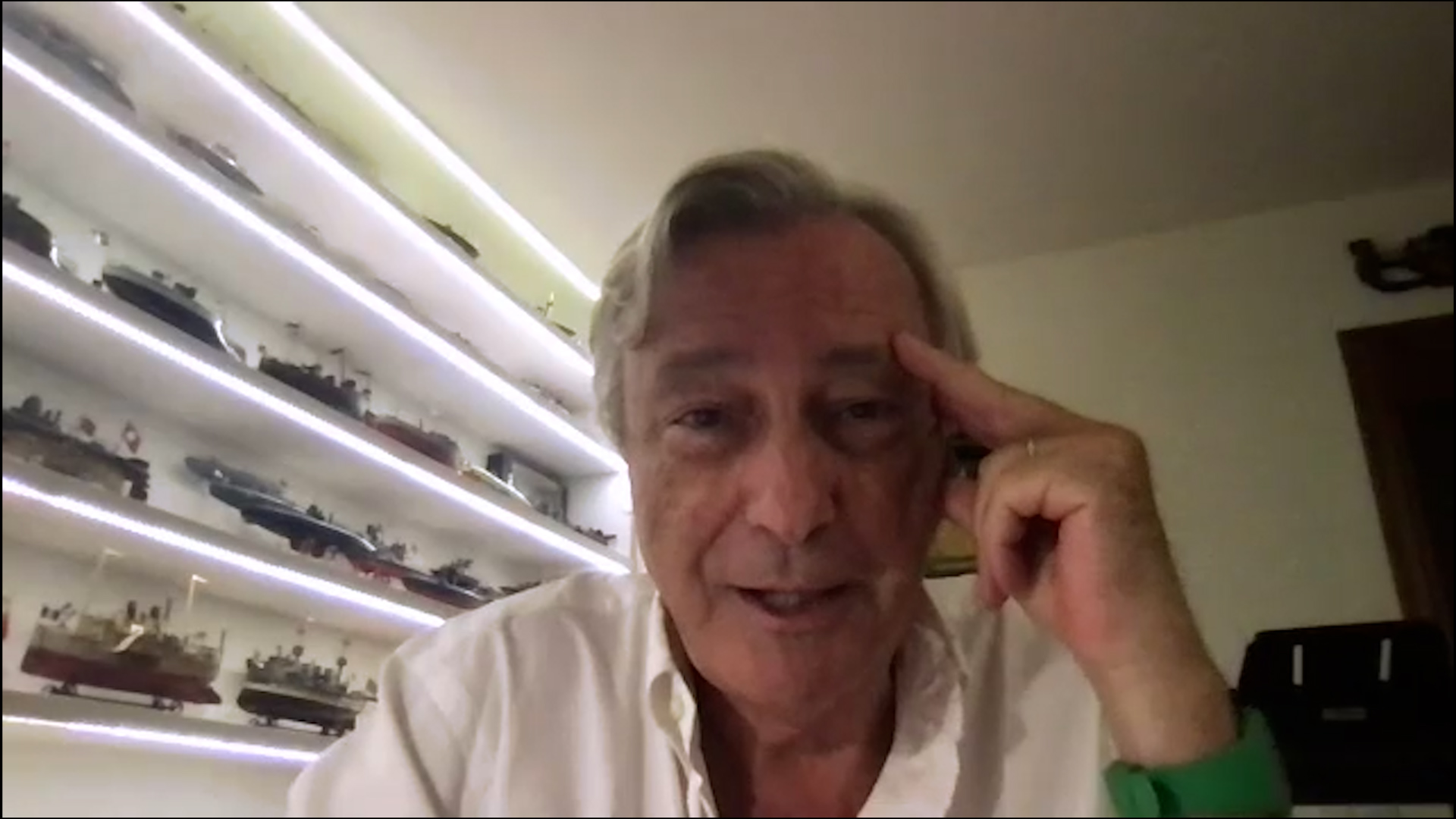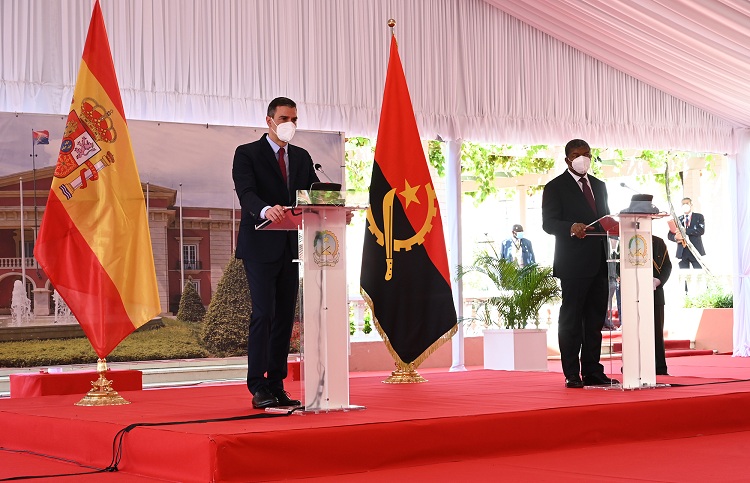Jorge Dezcallar
Exdirector of the National Intelligence Centre and Ambassador of Spain
Javier Socastro
Jorge Dezcallar, former director of the National Intelligence Centre (CNI) and former Spanish ambassador to Morocco, the Holy See and the United States, presents his recently released book, Espía accidental, in his video interview on the YouTube channel of The Diplomat in Spain. He talks to us about the novel and about the situation in Afghanistan.
In El anticario de Teherán and in Valió la pena, your first two books, we discover many of the anecdotes that have defined your experience as a diplomat and as director of the CNI. What does this novel preserve from the previous books, and what is the difference?
While the other books were of personal memories, this is pure fiction on a real background that is the drama of the Middle East, in the war in Syria. And that also starts from the first story I tell in the Tehran Antiquarian.
That story is real, that of the antiquarian. It is true that, as I tell at the beginning of the novel, I received a necklace to send it to her daughter, who is in Los Angeles. This story starts from there. It starts from what could have happened and is pure imagination, but located in a real background.
In fact, from what you have just told us, people might think that Asís García, the protagonist of the novel, is you, but prolonging that story in fiction, right?
I’m not so sure. I think that Asís García is a more mischievous and Spanish character. A nice and funny boy, but who does not want to work or study.
However, there comes a time when he finds meaning in his life, precisely when he is recruited by the National Intelligence Center because he is a profile that suits them to do a mission at a certain time. That’s where the character really grows.
Could we take Espía accidental as a novel to uncover the reality behind the life of an CNI spy, or is it just pure entertainment?
I think so. A person is him and his circumstance. I would not have written this novel, the way I wrote it, if I had not been director general of the Middle East in the Ministry of Foreign Affairs of Spain for eight years and if I had not gone through the National Intelligence Centre.
That is, my experiences are reflected in the book but it is a book that is pure fiction. If you want, it is a tribute to the National Intelligence Centre. It seems very good to me that spy novels are always Anglo-Saxon. But I think we have very good spies, so we can have very good Spanish spy novels. They deserve it too. And I think he’s a much more real James Bond character.
Could we be talking about Don Quixote from the CNI?
More than a character in Cervantes, he would be El lazarillo de Tormes, or he would be Guzmán de Alfarache or Don Pablos in El buscón. He is someone with a very Spanish character.
Who would you recommend this type of reading to?
People who like adventure. But people who also want to leave the comfort of their home and who are curious to know what is really happening in the Middle East and in Syria.
That they want to understand why one day there is a bomb in a market and why that happens. What radical Islamists believe and why they do these things. I think I would recommend it to people who are interested in these things and who want to understand what is happening in a very entertaining way.
You know Syrian society by first-hand, how do Syrian citizens, who have been in civil war for more than 10 years, live their daily lives?
It depends a lot on which Syrian citizens we are talking about.
If they are Syrian citizens who are from the Alawite minority who live in Latakia and who are close to the regime, then they live well. The war has practically not arrived there. Now if you live in Daraa, or you live in Afrin, or you live in Aleppo, then you have a very bad time.
Syria is a country ravaged by war. When there is a mass uprising against a dictator in countries where there is no democratic tradition, what emerges are the grassroots Muslim movements. That is what has happened in Syria. And there, then he ended up “putting the spoon everyone.” For example, Iran, Israel, Russia, the Emirates, Saudi Arabia, etc.
As a consequence, Syria is a country that suffers greatly. Where people have a very bad time. To this day, many people are trying to eat and in some other places they are still being bombed.
So why did you choose Syria as the setting for your novel?
Because Syria is where the covert, and sometimes uncovered, confrontation between Iran and Israel takes place.
In other words, what we see every day are Israeli attacks with planes, or with drones, on pro-Iranian militias or Iranian installations in Syria. Iran wants to become the dominant force in the country or the most influential force in Syria. And this is the story that is at the heart of my novel.
Without leaving the Middle East, what is your explanation of the decisions made by President Biden in Afghanistan?
First of all, Biden has inherited a bad deal that Donald Trump made. Trump said: “I am leaving on such a date in exchange for not being attacked.” Of course that is not an agreement, but a withdrawal. And Biden had to choose between meeting that date or continuing the war with American troops.
I think Biden is right to withdraw because there is no point in continuing a war indefinitely. Especially if now the problem of the United States is no longer the Middle East but China. The problem is how this withdrawal has been carried out. That was a disaster.
And who is the big loser of this decision?
The big loser in this decision is the Afghan people, or at least half of the people, specifically women.
Some women who, at least in the cities, had come out of the Middle Ages, had managed to take off their burqa, had managed to go to study … I think they are the big losers.
Furthermore, all the communities where European troops have contributed to development may also be harmed. Hopefully the Taliban have learned their lesson, but we’ll see how they use them. The problem is probably that there is a lot of radical in the makeup of your government.
Could you tell us if you are working on a fourth book?
I have an idea that is on my mind. So, it is very possible.
If this novel turns out well, and the feeling I have is that it could happen, then that would encourage me a lot. But anyway, some time must pass for now.
Any advice for someone in the diplomatic corps who is thinking of starting to write a book?
Diplomats for the life that we have, that we come into contact with many people, cultures, places … we have a great knowledge of many things. And I believe that diplomats must put that into value.
I would encourage you to write because somehow we are witnesses to history.







